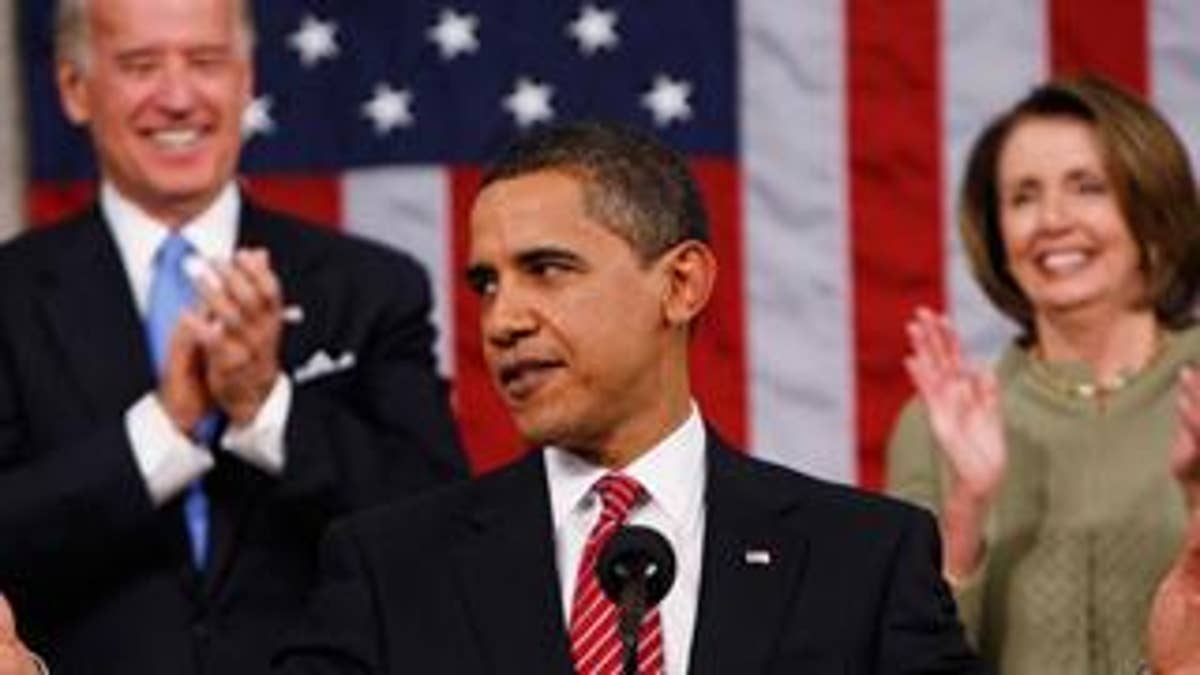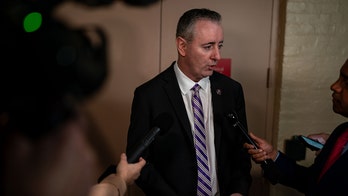
President Obama's address to Congress on Tuesday night had a little something for everybody, with nods to health care, education, alternative energy and the financial sector.
But missing from Obama's plans for long-term economic growth, was a description for how the country will invest in defense other than by boosting the military's head count and troop pay.
Obama scolded the military over the billions of dollars wasted on "no-bid contracts" in Iraq and money spent on "Cold War-era weapons systems we don't use," but as he warns about the need for budget discipline in the military and elsewhere, the Pentagon and top lawmakers are stepping up their calls for military investment.
Sen. John McCain, R-Ariz., told FOX News on Wednesday he agrees that wasteful spending at the Pentagon has to stop, but he expressed reservations about any move to rein in defense spending.
"Priorities can be improved, and a lot of things need to be improved, but I'm very leery about cutting defense spending overall," McCain, the former Republican presidential nominee, said. The military inevitably will need substantial funding to increase its size and continue with "high-tech development," McCain said.
The White House plans to unveil a fiscal 2010 budget overview Thursday. Reports have tagged the Defense budget base at $537 billion -- or 5 percent more than last year's $513 billion spending plan.
However, while no money is being cut to troops, some are concerned that big-ticket projects will be slashed in the process.
The Pentagon would not specify what is on the chopping block. Spokesman Geoff Morrell said Defense Secretary Robert Gates made everyone involved in the process sign an agreement pledging not to talk about it.
But the Pentagon already is looking at whether it needs projects like the super-stealth F-22 fighter jet, which costs $300 million per jet, and a multi-billion dollar missile defense program.
Morrell said military programs that are currently over budget or behind schedule will be subject to a "very thorough review" as part of the budget process, but he said Gates has made clear his commitment to his department's budgetary needs.
"He has a couple of admonitions before we went into this process, one of which is that across-the-board cuts are lazy and inefficient," Morrell said. "And so he has been adamantly opposed to implementing across-the-board cuts as a means of dealing with tightening budgets. He is equally opposed to cutting manpower to deal with constrained budgets."
He said while there's been "attempts in the past" to find budgetary savings through manpower reductions, Gates thinks "our best weapon is our personnel, our troops. And he wants to make sure that there are no cuts in them."
"In fact, he's growing the Army and the Marine Corps, and he's stopped reductions in the Air Force," Morrell said.
Rep. John McHugh, ranking Republican on the House Armed Services Committee, also said in a statement to FOXNews.com that he remains "deeply concerned" about the possibility of deep cuts in defense spending.
"It is enormously troubling to me that, in a time of war with American troops on the ground in two theaters of battle, the administration could be significantly cutting defense funding," he said. "Certainly, our current economic climate demands tough choices, but those choices should not be at the expense of our men and women in uniform."
Rep. Barney Frank, D-Mass., has raised flags in recent days by calling for a 25 percent reduction in defense spending. He said Tuesday that the military could save $160 billion a year by withdrawing from Iraq and eliminating "wasteful weapons systems," reducing the number of active nuclear warheads and making other cuts.
But key Democrats like Sen. Carl Levin of Michigan and House Majority Steny Hoyer of Maryland have said now is not the time to cut defense spending.
Asked about Frank's comments Wednesday, Morrell said: "We would obviously disagree with that assessment."




